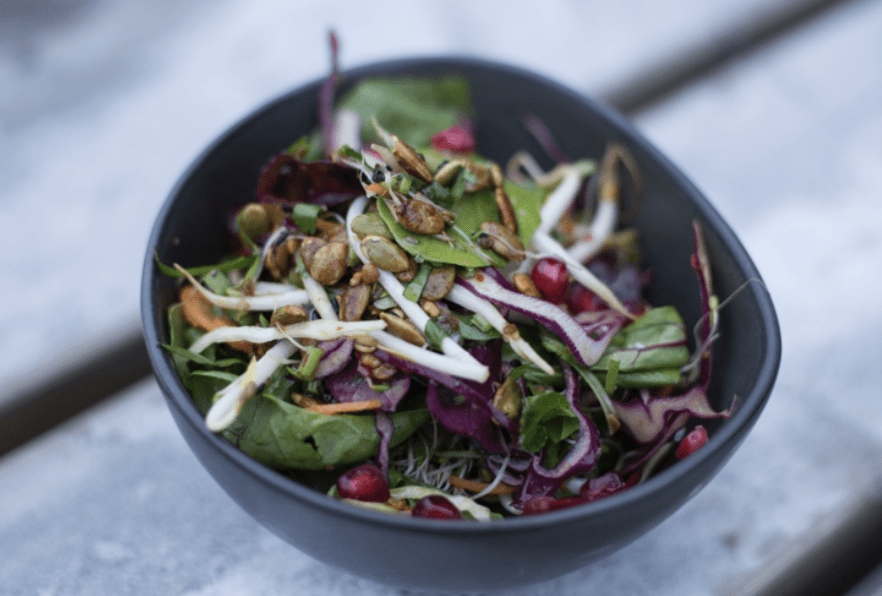Health begins in the gut
The gut is an organ that unfortunately still often receives too little attention. This is despite the fact that the intestine is one of the largest organs in the human body. The intestinal surface, consisting of villi, is the size of two tennis courts.
The intestinal flora is formed by trillions of bacteria that perform important tasks such as:
- Breaking down food and eliminating bad food components
- Absorption of minerals and vitamins
- Defense against toxins and pathogens
- Production of enzymes, amino acids and vitamins
Intestinal bacteria have long been known as digestive aids. However, intestinal bacteria also have a major influence on the immune system. After all, 80% of our immune system is anchored in the gut. Intestinal bacteria ensure that the body's own defenses function properly. A healthy intestinal flora is also important for the function of the intestinal barrier. This checks which substances pass from the body into the intestine and vice versa.
A large number of hormones are also produced in the intestine, including the happiness hormone serotonin and the sleep hormone melatonin.
Detailed article: Light
into the
darkness of the gut
A few years ago, Roman was interviewed by the St. Galler Tagblatt newspaper on the topic of the gut, resulting in a very readable article (Light into the darkness of the gut), which we are also allowed to share with you here with the kind permission of the newspaper.
We are very pleased that the topic of gut health and gut bacteria is now being addressed much more frequently in the press than it used to be. Nevertheless, many people are still unaware that intestinal bacteria and the intestinal environment actually determine a large part of our health and well-being.
In the article "Light into the darkness of the gut" you can find out more about:
- What the immune system has to do with the gut

- Why more and more people are suffering from allergies and intolerances these days
- Which complaints are seen as a direct result of sterile industrial food, germicidal drugs and disinfectant cleaning agents
- What probiotics are
- Why scientist Tim Spector advises getting a dog or gardening
- Why vegetables are so important in our diet
- Which vegetables are considered particularly gut-friendly
- What gut bacteria have to do with losing weight
- Why it is important to eat enough fat
Thanks to Katja Fischer de Santi for the very interesting article.
The effects of impaired intestinal flora
As already mentioned, our intestinal wall needs a protective barrier. Beneficial bacteria form this barrier and ensure that harmful microorganisms cannot colonize the intestine. can colonize. The intestinal flora can become unbalanced for various reasons:
- Stress, both mental and physical, leads to inflammation in the gut
- An unbalanced diet and lack of exercise
- Medication such as antibioticswhich not only destroy pathogenic germs, but also the healthy, important intestinal bacteria
Whether our intestinal flora is disturbed is usually made clear to us very quickly. The most common complaints include:
- Intestinal problems such as diarrhea, flatulence and constipation
- Irritable bowel syndrome
- Allergies such as animal hair allergies or hay fever
- Food intolerances such as gluten intolerance
- Mental stress such as mood swings, panic attacks or ADHD
- Autoimmune diseases
- Skin problems such as neurodermatitis or psoriasis
- Histamine intolerance
- Inflammation of the gums
- Weakened immune system and susceptibility to infections
- and much more.
Healthy intestinal flora - what you can do
If you eat a balanced diet, you are doing something good for your intestinal flora. Here is an overview of which foods are particularly beneficial for the intestinal flora in healthy people:
- At least 2 liters of water per day
- Onions and garlic (simply integrate when cooking)
- Fruit and vegetables such as bananas, beans, peas, fennel, celery and cabbage
- Generally fresh, real food and no industrially produced food
- Fermented foods such as kimchi, sauerkraut or fermented carrots
- High-fiber foods such as linseed and chia seeds (ideal for muesli in the morning)
Try to avoid sugar, fast carbohydrates, alcohol, salt and nicotine as often as possible. This is because they can have a negative effect on your intestinal environment.
However, if you already have intestinal problems, there are other details that you should pay attention to in your diet.
Supplements to strengthen the intestinal flora
In addition to a healthy diet, you can also strengthen your intestinal flora by taking supplements or food supplements. Take a look at our lactic acid bacteria.
These probiotic bacteria are used to rebuild weakened intestinal flora. For example, for digestive problems and after antibiotic therapy. Lactic acid bacteria are part of every intestinal cleanse, where the aim is to detoxify the body and support it with "good" bacteria. Probiotics are also used to strengthen the immune system, to lose and gain weight and to prevent leaky gut syndrome (permeable intestinal mucosa).
How are you doing with your gut? What have you done so far to look after or build up your gut? Or what questions do you have in this regard? Write to me in the comments, I look forward to hearing from you!
















